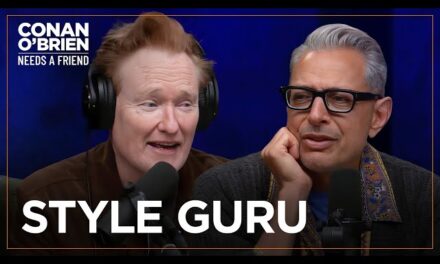In a recent episode of the popular talk show "David Letterman," the host took a moment to explain the long and grueling five-month writers' strike that had recently come to an end. To help viewers understand the complexities of this labor negotiation, the show's own Peace Through Dramatization Players put together a play titled "Hell Strike 88: The Reckoning."
With a sense of relief, Letterman expressed his joy at the strike's resolution, stating that everyone can now look forward to fresh and original episodes of their favorite shows. Even his trusty sidekick, Tuffy the dog, seemed to share in the sentiment, wagging his tail in agreement.
However, not everyone shared the same enthusiasm. A character portraying Letterman's son voiced his bitterness about his father's undeniably successful career, suggesting that the television writers were already making too much money. This led to a humorous exchange in which Letterman jokingly threatened to "fry" his son.
The play further explored the debate surrounding the writers' paychecks, with Letterman's character arguing that not just the writers, but everyone in television, is paid too much for the amount of work they do. Even the producers, according to the character, receive significantly more money for doing less work than the writers.
The conversation turned to the question of whether actors could simply improvise their lines instead of relying on the writers. While Letterman's character saw the merit in the idea, he humorously pointed out that most actors would struggle with even the simplest tasks, let alone improvising dialogue.
Throughout the play, the message became clear: television was being criticized as a "stinking Cesspool of mediocrity," and Letterman's character even expressed empathy for Broadway star Michael Crawford, likening the television industry to a pale and puffy version of the theatrical world.
As the play came to a close, the audience erupted in applause, recognizing the satire and comedic talent of the Peace Through Dramatization Players. It was a playful and lighthearted portrayal of a serious and complex labor dispute, reminding viewers of the entertainment value of talk shows like "David Letterman."
In the end, it was a standout moment on the show, showcasing Letterman's ability to engage his audience with witty banter and clever skits. For fans of the talk show, this episode was just another example of why "David Letterman" remains a beloved and entertaining staple in the late-night talk show landscape.




